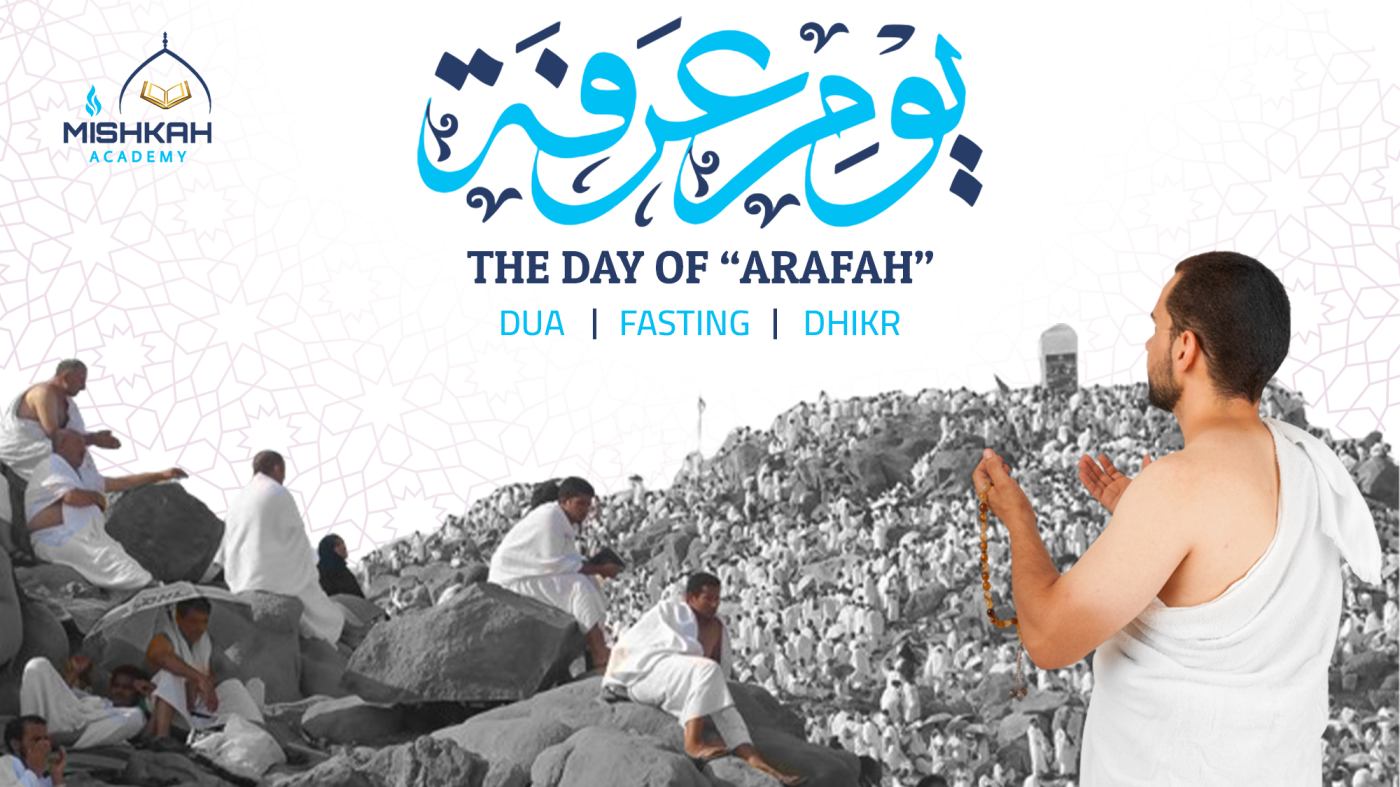Day of Arafah: Virtues and Significance Explained
Table of Contents
ToggleThe Day of Arafah (Yawm Al-Arafah) falls on the 9th day of Dhu’l-Hijjah in the Islamic calendar. This date comes during the Hajj pilgrimage to Makkah. It’s the holiest day of the Islamic lunar year, marking a time when Islam was perfected.
The importance of the Day of Arafah is key in Islamic teachings. The Prophet Muhammad (peace be upon him) said the ten days of Dhu’l-Hijjah, especially Arafah, are very special to Allah.
Key Takeaways
- The Day of Arafah occurs on the 9th of Dhu’l-Hijjah, the 12th month in the Islamic calendar.
- This day is the holiest in the Islamic Hijri year, marking the completion of Islam’s teachings.
- The Day of Arafah is known for divine forgiveness and mercy.
- Allah is believed to free many people from Hell on this day.
- Pilgrims stand on the Plains of ‘Arafat on the 9th, praying and seeking forgiveness.
- Even for non-pilgrims, fasting on the Day of Arafah is highly advised.
- It is believed to forgive sins from the previous and next year.
What is the Day of Arafah?
The Day of Arafah is the ninth day of the last month in the Islamic calendar. It falls during the Hajj pilgrimage to Makkah. This day is very special and is considered the most important in the Islamic year.
According to the Prophet Muhammad, the Day of Arafah is a time of great mercy. He said Allah forgives more people on this day than any other.
This day is also significant because it marks the completion of Islam. In the Quran, it says, “This day I have perfected your religion for you…” (Quran 5:3)
Even if a Muslim is not performing Hajj, fasting on the Day of Arafah is highly recommended. The Prophet said it can wash away the past year’s sins and the ones to come.
The Day of Arafah plays a central role in Hajj. Standing in Arafat from sunset to dawn is a must. It’s a day for deep spiritual reflection, seeking forgiveness, and renewing one’s faith.
Significance of the Day of Arafah
The Day of Arafah is hugely important in Islam. It’s the day when the religion of Islam was completed. It marks Allah’s completion of his blessings for Muslims and all people, which is shown in the Quran. On this day, the Prophet Muhammad (peace be upon him) gave his Farewell Address during his last pilgrimage.
The Day of Arafah is key in Islam’s teachings. It’s a time for a lot of forgiveness and mercy from Allah. As the Prophet said, “There is no day on which Allah frees more servants from the Fire than on the Day of Arafah.”
“There is no day on which Allah frees more servants from the Fire than on the Day of Arafah.”
Muslims are asked to pray a lot on this day. Their prayers are more likely to be answered by Allah. Fasting on the Day of Arafah helps to wipe out sins of the past and the coming year.
Also, on the Day of Arafah, giving charity is highly valued. It’s seen as one of the best acts of worship on this special day. Its value highlights the great importance of the Day of Arafah in Islamic life.
The Virtues of the Day of Arafah
The Day of Arafah shines with Allah’s forgiveness and mercy. The Prophet Muhammad (peace be upon him) said, “There is no day on which Allah frees more servants from the Fire than on the Day of Arafah.” This shows how special this day is, forgiving the sins of many who turn to Allah.
Falling on the 9th day of Dhul Hijjah, the Islamic calendar marks Arafah. In 2024, it falls on June 15. It stands as the pinnacle of the Hajj pilgrimage. People spend the day at the Mount of Mercy, praying and seeking forgiveness.
On this day, people remember Allah more, recite the Quran, and do good. They also give to charity and pray a lot for forgiveness. The significance of the Day of Arafat is clear in the Quran and the Prophet’s sayings.
Omar bin Al Khattab’s Hadith stresses Arafat’s role in perfecting faith. Abu Hurairah’s Hadith talks about the honor Arafah’s people receive. Aishah’s Hadith emphasizes the day’s importance in avoiding hell.
Even those not on Hajj should fast. The Prophet (peace be upon him) said, “Fasting on the Day of Arafah expiates the sins of the past year and the coming year.” This act is so powerful many see it as a chance for a fresh start.
“There is no day on which Allah frees more servants from the Fire than on the Day of Arafah.” – Prophet Muhammad (peace be upon him)
Standing at Arafat
The Day of Arafah is a key event in the Islamic year. It’s when millions gather at Arafat, near Mecca. This is part of the Hajj pilgrimage, which the Prophet Muhammad likened to Arafat.
Pilgrims spend the day in deep thought, prayer, and asking for forgiveness. They stand before God, seeking His mercy. The exact time for this act varies among Islamic scholars.
Standing at Arafat offers a deep spiritual journey for pilgrims. They aim to understand the true meaning of the Hajj and to please God. Fasting on this day is said to erase a year’s worth of sins, as taught by the Prophet.
“There is no day on which Allah frees more servants from the Fire than the Day of Arafah.”
The site of the Farewell Sermon, at Mount Arafat, is very special. The acts of worship and respect here show the strong bond between believers and God.
The Day of Arafah is a time for deep reflection, asking for forgiveness, and seeking a path to heaven. It highlights the significance of the Hajj and the unity it brings to Muslims.
Fasting on the Day of Arafah
For those not on Hajj, it is a special recommendation to fast on the Day of Arafah. The Prophet Muhammad (peace be upon him) said, “Fasting on the Day of Arafah expiates the sins of the past year and the coming year.” This shows how important fasting on this day is for our spiritual health.
Fasting on the Day of Arafah holds a special place in Islam. The Prophet taught that on this day, more people escape hell than any other. He also said that Allah boasts about the pilgrims of Arafat to the angels during the evening prayer.
The Prophet showed the immense value of worshipping during the ten days of Dhul Hijjah. And he said there are no better days for worshipping. Adding to its significance, the Day of Arafah falls on the ninth day of the 12th Islamic month, making it a key day of the year.
“Fasting on the Day of Arafah expiates the sins of the past year and the coming year.”
For non-pilgrims, fasting on this day is highly valued. It helps cleanse the soul for Jannah (Paradise). Giving Sadaqah (charitable donation) on this day also helps show support for those in need and pleases Allah.
To sum up, the benefits and value of fasting on the Day of Arafah are clear in Islamic teachings. This practice helps Muslims seek forgiveness and Allah’s favor, deepening their spiritual ties on this holy day.
Virtues of the Day of Arafah
The Day of Arafah is on the 9th day of Dhul-Hijjah in the Islamic calendar. This day is very important for Muslims. They ask for forgiveness, show thanks, and get closer to God.
On the Day of Arafah, Allah pardons many of his followers. The Prophet Muhammad said, “There is no day on which Allah frees more servants from the Fire than on the Day of Arafah.” This shows how spiritually important this day is.
Islam’s teachings were completed on the Day of Arafah. This shows how special the day is in history. It’s a day of great spiritual and historical value for Muslims.
On Arafah Day, it’s encouraged to do extra good deeds. This includes more prayers, reading the Quran, and helping others. These actions help Muslims feel closer to God.
The Day of Arafah is very special to Muslims around the world. It’s a time for deep reflection and improvement. Let’s use this day to better ourselves and get closer to God.
“There is no day on which Allah frees more servants from the Fire than on the Day of Arafah.”
– The Prophet Muhammad (peace be upon him)
The Days of Dhul-Hijjah
The first ten days of Dhul-Hijjah, the final month in the Islamic calendar, are very sacred. They are the most special days of the year. Prophet Muhammad once said, “There are no days greater and more beloved to Allah than these (first) ten days of Dhul-Hijjah.” The 9th of Dhul-Hijjah, the Day of Arafah, is the most important day within this period.
Muslims are asked to do more good during these blessed days. They should remember Allah often and help others through charity and sacrifice. These actions have big rewards from Allah. Following the ways of the Prophet Muhammad is highly encouraged during these days.
The first ten days of Dhul-Hijjah are key for the Hajj pilgrimage. This is the time when Hajj and Umrah are performed. Sacrificing an animal is a good deed. People planning to do so should avoid cutting their hair or nails first.
- The first ten days of Dhul-Hijjah start on Saturday, 8th June 2024, with Eid-ul Adha expected on Monday, 17th June 2024 (based on UK Moon Sightings).
- Fasting the first nine days of Dhul-Hijjah is recommended. Fasting brings great rewards, especially on the Day of Arafah.
- It is good to recite religious sayings during the first ten days of Dhul-Hijjah. This practice is encouraged in Islam.
- Many scholars say the “appointed days” in the Quran mean the first ten days of Dhul-Hijjah.
| Recommended Actions | Significance |
|---|---|
| Performing Hajj and Umrah | Among the greatest acts of worship |
| Sacrificing an animal (Udhiyah/Qurbani) | A righteous deed, with the recommendation to not cut nails or hair if planning to offer a sacrifice |
| Fasting the first nine days of Dhul-Hijjah | A highly rewarded act of worship, with specific rewards for fasting on the Day of Arafah |
| Reciting Tahleel, Takbeer, Tahmeed, and Tasbeeh | Encouraged as per Islamic teachings |
The ten days of Dhul-Hijjah are a special time for Muslims to get closer to Allah. They should do more worship, give to those in need, and make sacrifices. By doing this, they can feel closer to Allah and get the blessings the Prophet Muhammad promised.
The Plain of Arafat
The plain of arafat is key to the day of arafah, marked as sacred in the Islamic calendar. Found about 12 miles from Makkah, this place sees millions of Muslim visitors each year. They come to stand in worship, asking Allah for his mercy and forgiveness.
The Jabal Arafah, or Mount of Mercy, is a central point here, reaching about 230 feet high. It’s famous because the Prophet Muhammad gave his Farewell Address from this spot. This happened during his very last pilgrimage, showing how essential this place is spiritually.
The day of arafah is on the ninth day of Dhu al-Hijjah, the final month in the Islamic lunar calendar. Pilgrims gather in Arafat before noon and stay until sunset, deep in thought and prayer. They do this as a ritual called ‘standing before God’ (wuquf) and it’s a crucial part of the Hajj pilgrimage.
If someone can’t make it for Hajj, fasting on the day of arafah is a good choice. It’s believed to wipe away sins from the past year and the year to come. The Prophet Muhammad said, “Fasting on the Day of Arafah expiates the sins of the past year and the coming year.”
It is recorded that Muslims who are not performing Hajj are encouraged to fast on the Day of ‘Arafah as it atones for sins committed in the preceding and coming year.
The plain of arafat and the day of arafah are very important in Islam. They mark a significant time in the Hajj pilgrimage. It’s a time for deep thinking, asking for forgiveness, and finding peace with God.
The Origin of the Name “Arafah”
The term “Arafah” has deep meaning in Islamic teachings, yet its exact source is not fully identified. Scholars have debated for years on the real beginning of this revered name.
It is thought that “Arafah” comes from an Arabic word meaning “to know” or “to recognize.” This idea suggests that Arafah was where Adam and Eve met again. They met after leaving the Garden of Eden. This reunion was a key moment of knowing each other again.
Some say the name is linked to the word “to meet.” This connection is because Arafah was where Prophet Abraham fulfilled a difficult order from God. He was told to sacrifice his son Ismail. This event is considered a crucial meeting between God’s will and the Prophet’s trust.
Despite ongoing debates, “Arafah” is now deeply tied to both a specific day and place of worship. These are critical to Muslims globally. The Day of Arafah marks a central point of the Hajj journey. It’s a day of intense reflection, prayer, and asking for forgiveness from God.
Whether taken to mean “knowing,” “recognizing,” or “meeting,” Arafah’s day is vital for believers. It has symbolized the strong bond between the divine and the faithful for over centuries.
Conclusion
The Day of Arafah is crucial in the Islamic calendar. It marks the holiest day and the completion of the Islamic faith. It’s a day full of forgiveness and mercy from Allah. The Prophet said it’s a day when Allah spares many from the Fire.
On the Day of Arafah, Muslims stand at Arafat, fast, and pray more. These actions show the day’s deep spiritual meaning. Understanding the virtues of the Day of Arafah helps believers get more blessings and forgiveness.
Even if not at the Hajj, observing the Day of Arafah is special. It helps Muslims strengthen their faith and pray deeply. This day allows believers to feel closer to Allah and improve their connection with him.
FAQ
What is the Day of Arafah?
The Day of Arafah is the ninth day of Dhu’l-Hijjah in the Islamic calendar. It falls during the Hajj pilgrimage to Makkah. This day marks the perfection of the Islamic faith. It is a key part of the Hijri year.
When is the Day of Arafah?
The Day of Arafah is on the ninth day of Dhu’l-Hijjah. It is also the second day of the Hajj pilgrimage.
What are the virtues of the Day of Arafah?
The Day of Arafah is a special time for Allah’s forgiveness and mercy. The Prophet said it’s a day when many are saved from Hell. It’s also when the Quran spoke of the completion of Islam.
What is the significance of standing at Arafat on the Day of Arafah?
Standing at Arafat is crucial during Hajj. It’s a day when pilgrims gather for Forgiveness and Mercy from Allah. This moment at Arafat is central to the Hajj, according to the Prophet (peace be upon him).
Is fasting recommended on the Day of Arafah?
For non-pilgrims, fasting on the Day of Arafah is highly suggested. It’s a day of forgiveness. Fasting can clear sins from the past and future years, as the Prophet said.
What is the significance of the Days of Dhul-Hijjah?
The early days of Dhul-Hijjah are very special. The Prophet called these days the best times to worship Allah. Among them, the Day of Arafah on the 9th stands out as the most important.
It is the holiest day of the year for Muslims.
What is the significance of the Plain of Arafat?
Arafat Plain is where pilgrims gather for Hajj. They stand there, asking Allah for mercy and forgiveness. Jabal Arafah, a peak around 230 feet, is a key part of the plain.
What is the origin of the name “Arafah”?
The origin of “Arafah” is still a mystery. A part of it might come from words meaning “to know” or “to recognize.” It’s where Adam and Eve found each other again after leaving Eden. Or it might be from “to meet,” linked to when Prophet Abraham was asked to sacrifice his son Ismail.






